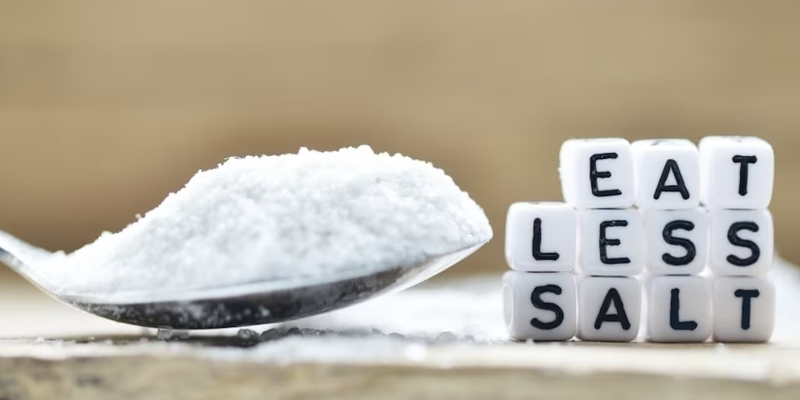Advertisement
When saving for a home, it's natural to wonder if you should invest your savings to potentially grow your down payment. After all, investing can offer higher returns compared to a traditional savings account. But it also comes with risks. To help you decide whether you should invest while saving for a home, we'll dive into the potential benefits, risks, and factors you need to consider before making a decision.
Saving for a home is no small feat, especially with rising property prices. By investing part of your savings, you could potentially grow your money faster than if it were sitting in a low-interest savings account. Here are some benefits of investing while saving for a home:
Higher Potential Returns: Traditional savings accounts often offer very low interest rates, especially when inflation is factored in. By investing in stocks, bonds, or mutual funds, theres a chance you could earn significantly higher returns. If the market performs well, your money can grow at a faster pace, helping you reach your home down payment goal sooner.
Fighting Inflation: One of the biggest drawbacks of keeping your savings in a regular bank account is that the interest earned often doesn't keep up with inflation. Investing your money can be a way to protect your savings from losing value over time, especially in a high-inflation environment. When your investments grow at a rate that outpaces inflation, you are essentially preserving the purchasing power of your savings.
Diversifying Your Financial Goals: While a home may be your main financial priority, its important not to ignore other long-term financial goals. Investing even a small portion of your home down payment savings could help you maintain a balance between your short-term need for a home and long-term goals like retirement or education savings. This way, youre building wealth on multiple fronts.
While investing can offer higher returns, it can also lead to losses, especially over the short term. There are several risks to consider:
Market Volatility: The stock market, and even some bond markets, can be unpredictable. If you invest your savings and the market takes a downturn just before you're ready to buy a home, you might end up with less money than you initially saved. For example, if youre a year or two away from buying a home and the market drops by 20%, your down payment savings could take a significant hit.

Uncertain Timeline: When saving for a home, most people have a relatively short-term timeline, often ranging from one to five years. Unlike long-term investments, short-term investing doesnt give you enough time to recover from market dips. Even conservative investments like bonds can carry some risk of loss over short periods. If your timeline is short, theres a higher chance that market fluctuations could impact your savings.
Emotional Stress: Investing involves risk, and that can create emotional stress. If you're watching the market go up and down while you're trying to save for a home, you may find it stressful to track your portfolio daily. Watching your savings decline, even temporarily, might lead to emotional decisions like pulling out of the market at the wrong time.
So, should you invest while saving for a home? The answer depends on several personal factors. Here are some key considerations:
The length of time before you plan to buy a home should play a major role in your decision to invest. If youre planning to buy within the next one to two years, investing is much riskier due to the short investment horizon. In this case, keeping your savings in a high-yield savings account or another low-risk vehicle might make more sense. However, if your home purchase is five years or more away, you could consider a more diversified investment strategy, as youll have more time to ride out market fluctuations.

Not everyone is comfortable with the ups and downs of investing, especially when it comes to saving for something as significant as a home. If youre a more conservative investor, it might be best to avoid investing your home savings entirely. On the other hand, if youre comfortable taking on some risk and can afford to wait a little longer if the market underperforms, investing could be a smart way to grow your down payment.
The amount of money you're able to save and how frequently you contribute to your savings can also influence your decision. If you're able to contribute a significant amount to your home down payment savings regularly, you might feel more comfortable investing a portion of it. Youd have enough cash reserves to handle short-term market dips while still growing your savings.
If you're leaning toward investing while saving for a home, there are ways to find a middle ground that could offer some growth potential without putting your home down payment at risk. Here are some strategies:
Keep Some Cash in a High-Yield Savings Account: You don't have to invest all your savings. By keeping a portion of your savings in a high-yield savings account or money market fund, youll have access to cash that isnt affected by market swings. This gives you security while you invest the rest.
Consider Low-Risk Investments: If youre uncomfortable with the stock market but still want to invest, consider low-risk options like bonds or bond ETFs. While they offer lower returns compared to stocks, they also tend to be more stable, especially in the short term.
Set Up Automatic Contributions to Both Accounts: One way to balance saving and investing is to set up automatic contributions to both a savings account and an investment account. This way, you're consistently saving but also giving your investments a chance to grow.
Investing while saving for a home can be beneficial if you have time, risk tolerance, and a solid strategy, but it comes with challenges. Assess your finances, timeline, and comfort with potential losses. A high-yield savings account may be safer for some, while others might prefer a balanced approach with investments to grow their savings. Ultimately, ensure your choice aligns with your goals and financial health.
Advertisement

By Celia Kreitner/Sep 27, 2024

By Sean William/Dec 07, 2024

By Triston Martin/Oct 22, 2024

By Elva Flynn/Nov 16, 2024

By Elva Flynn/Nov 15, 2024

By Nancy Miller/Dec 12, 2024

By Paula Miller/Dec 07, 2024

By Nancy Miller/Oct 12, 2024

By Madison Evans/Dec 12, 2024

By Korin Kashtan/Dec 12, 2024

By Darnell Malan/Nov 05, 2024

By Maurice Oliver/Dec 12, 2024